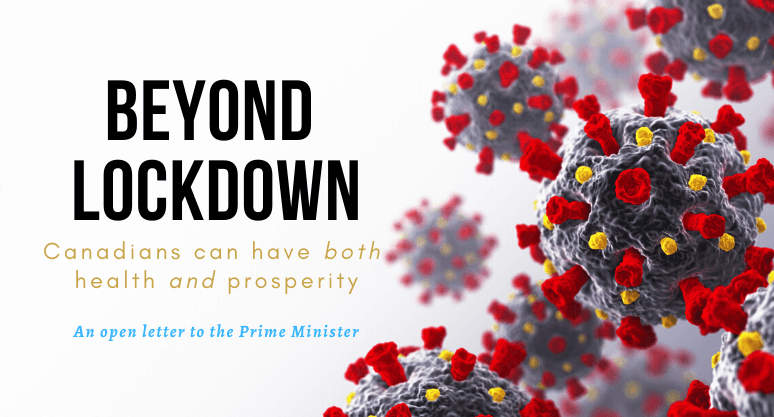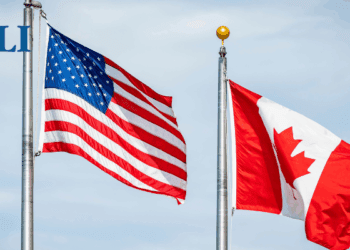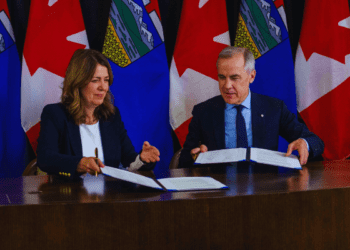 (Read the press release here.)
(Read the press release here.)
May 14, 2020
Dear Prime Minister,
Since the beginning of the COVID-19 outbreak, Canadians have been presented with a stark choice – either selflessly shut down the economy to save lives or selfishly worry about the economy and condemn thousands to a vicious illness.
This view has formed the basis of the federal government’s response to the crisis to this point, usually bolstered by the claim that the approach is based on science and “evidence,” even as the evidence changes daily and the proclamations of health officials have proven wrong countless times. If it hasn’t already, the government’s refrain will soon wear thin with Canadians suffering the devastating economic, social and health effects of the lockdown.
As numerous experts, including those at MLI, have been arguing from the outset, the alleged choice we face is not just a stark one, but a deeply misleading and false one. The lockdown was likely necessary, given the position Canada was in, and was justified because it served two purposes. First, to “flatten the curve,” thus spreading over time the number of cases of inevitable illness so they would not overwhelm the health care system. Second, the lockdown was to buy us time to build sufficient testing and protective capacity to allow us to return to something like “normal” at the earliest possible moment.
What seems clear by now is that the lockdown did contribute to flattening the curve, but the measures employed were disproportionate to the objective. Moreover, flattening the curve was not without significant cost to our well-being, whether from the health or the economic point of view.
As for the economic cost, it has been nothing less than the deepest and most rapid loss of jobs, savings and income in the history of Canada. As MLI’s Philip Cross has pointed out, the topline job loss numbers we’ve seen so far only scratch the surface. If one includes those unable to work due to lockdown measures and those who have given up looking for work due to the crisis, the unemployment rate would have been 23 percent in March alone. Over March and April, three million Canadians officially lost their jobs, while another 2.5 million were not able to work at all or had much reduced hours. Overall, employment fell by 15.7 percent and hours worked by 27.7 percent. By early May, 7.8 million Canadians had turned to emergency income support from the federal government.
Estimates of the federal deficit resulting from COVID-19 range up to $400-billion. Cross’s Leading Economic Indicator, which had previously predicted sluggish growth over the early part of 2020, shows the economy is now in freefall.
Equally importantly, the lockdown has in fact been very damaging to Canadians’ health: illnesses and conditions not related to COVID-19 have gone untreated or undiagnosed, including leading killers such as cancer and heart disease; mental illness issues have become exacerbated on a major scale; Canadians have died of heart attacks and other conditions for fear of visiting emergency wards despite the fact that most have capacity. Other social issues with a clear connection to health have also been made worse, including increases in domestic abuse and crime, and troubling worries about a potential suicide epidemic. The poor health outcomes from growing impoverishment of Canadians due to the lockdown will likely continue for years.
So these, too, are consequences of lockdown measures done in the name of health. The US Centers for Disease Control and Prevention (CDC) has begun releasing figures showing that a substantial portion of the spike in mortality accompanying the pandemic was not due to confirmed or probable COVID-19 infections. In New York City, for example, as of May 2, such cases accounted for more than 5,000 deaths, or 22 percent of the excess deaths since the pandemic hit. It’s certainly plausible that many died due to the effects of the lockdown and the impact of COVID-19 on the health system. According to the CDC, “Tracking excess mortality is important to understanding the contribution to the death rate from both COVID-19 disease and the lack of availability of care for non-COVID conditions.” Unfortunately, Canada has so far failed to release comparable data.
Despite all this, judging by the lack of preparedness for the necessary phase two of our recovery efforts, the lockdown has also been largely squandered. Personal protective equipment remains in short supply, vulnerable populations like seniors remain inadequately protected in many cases and we are struggling to get needed testing capacity up to the levels required to begin a phased return to work. We have failed even to perform a national random sample test to establish a COVID-19 baseline across the entire population. Yet we seem to have no difficulties spending hundreds of billions of dollars of borrowed money to compensate people for not being able to work when proper measures would make work possible for many now idled.
Now Ottawa seems to be shifting the goalposts. The rationale for the lockdown seems to have morphed subtly from managing the outbreak by “flattening the curve” to preventing the illness from infecting Canadians at all, pushing the timeline for a return to some economic activity into the summer and a return to “normal” a year or more into the distance when a vaccine is available. It’s an impossible goal that is being pursued at an almost incalculably large cost to the well-being of Canadians in exchange for a largely illusory benefit. Some health experts would go even further, advocating that the goal should be “eliminating” the virus from Canada, somehow avoiding any mention of the economic hardship that would entail.
Even as provinces such as Quebec, Alberta and BC push to reopen, you are hesitating. Ottawa needs to do more to support the provinces in their efforts, not get in their way.
“More” does not mean more vast government programmes such as those that have been created on the fly to “tide people over” as a consequence of the government-imposed lockdown. While these have their merits in the very short term, the result is that we are imposing huge costs on ourselves and future generations with spending that is a very poor substitute for Canadians being able to work and provide for themselves and their families through their own efforts and energy. We don’t work only to earn money but because of the dignity of work and its affirmation of our worth and our contribution to society.
Moreover we are loading a disproportionate share of the cost of combating COVID-19 onto the young (in order to protect the old) and blue-collar and service sector workers (who cannot work from home) as opposed to white-collar workers (who often can). These too are policy trade-offs we cannot blame on “experts.” They are choices made by politicians who must be accountable.
We can and must do better. It is the responsibility of our leaders to defend both the health and prosperity of Canadians. These goals are not in conflict but reinforce one another. The path forward does not lie in politicians deferring to experts. As two experts from the London School of Economics observed recently, “It is dangerous when politicians ignore expert advice. But it is just as dangerous when politicians outsource their judgment to experts, especially if the margin of error is huge and the advice is contested. Ultimately, it is the job of politicians to make the tough decisions about trade-offs.”
Understanding this should give our leaders, including you Prime Minister, the courage to lead us in a better direction. What is needed from you now is a clear indication of how we can move to normality and what we can expect to see as a result. Any easing of the lockdown is going to increase the infection rate – the crucial question is how we can do it without increasing the death rate. This is what we are looking for from you, not endless announcements of programmes to pay us while we wait. We need as much information as possible about the risks of returning to work and how to mitigate them while leaving final decisions in the hands of local workers and employers who know their own circumstances best.
The government must trust and empower Canadians to move prudently back to something approaching normal by giving us clear, non-technical statements of the best available information on which to base our decisions and then allowing and indeed encouraging us to take responsibility for ourselves and get back to work.
Confirmed signatories to date:
John Adams, Board Chair, Best Medicines Coalition
Uswah Ahsan, political science student and non-profit founder
Michael Binnion, CEO, Questerre Energy
Brendan Calder, Professor of Management, Rotman School of Management, U of T
Ken Coates, Canada Research Chair, Johnson-Shoyama School of Public Policy
Philip Cross, former Chief Economic Analyst at Statistics Canada
Brian Lee Crowley, Managing Director, Macdonald-Laurier Institute
Patrice Dutil, Professor, Department of Politics and Public Administration, Ryerson University
Brian Ferguson, Professor of Economics, University of Guelph
Wayne Gudbranson, CEO, Branham Group Inc.
Robert Krembil, Chairman, Krembil Foundation
Ian Lee, Associate Professor, Sprott School of Business, Carleton University
Micheline Brunet McDougall, Founding President, BMA Strategic Research
Vaughn MacLellan, Partner, DLA Piper (Canada) LLP, Toronto
Joe Martin, Founding President, Canadian Business History Association
Soroush Nazarpour, CEO, NanoXplore Inc
Nigel Rawson, President, Eastlake Research Group
Raheel Raza, President, Muslims Facing Tomorrow
Vijay Sappani , CEO , Ela Capital Inc.
Anil Shah, President, Ni-Met Metals Inc.
Shawn Whatley, MD, former President, Ontario Medical Association
Andrew Wildeboer, President. Royal Lepage RCR Realty and Team Realty
Rob Wildeboer, Executive Chairman, Martinrea International
David Zitner, retired physician and founding director of Medical Informatics, Dalhousie University
Inquiries
Looking for more information? Please contact MLI’s Communications and Digital Media Manager, Brett Byers: brett.byers@macdonaldlaurier.ca




